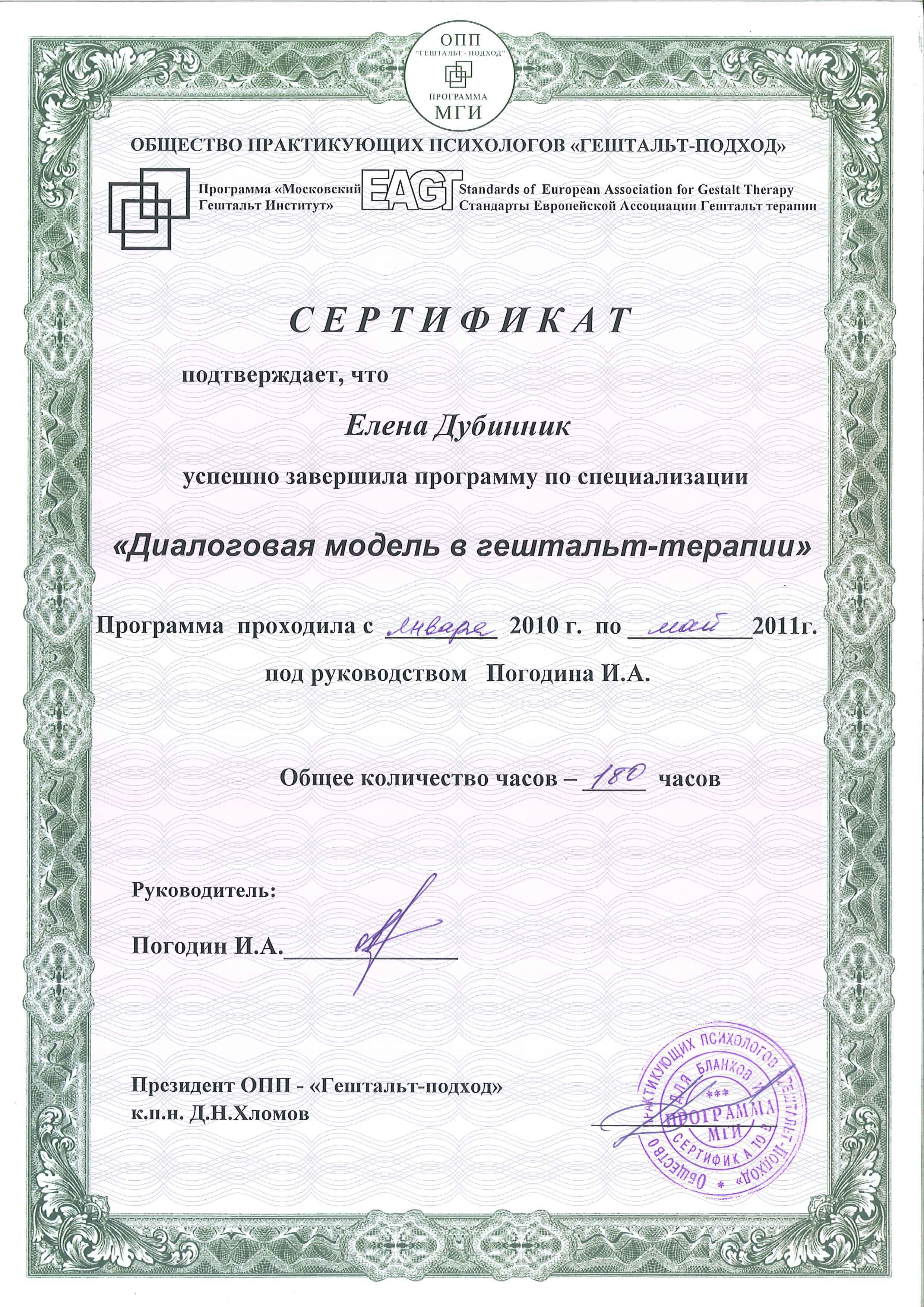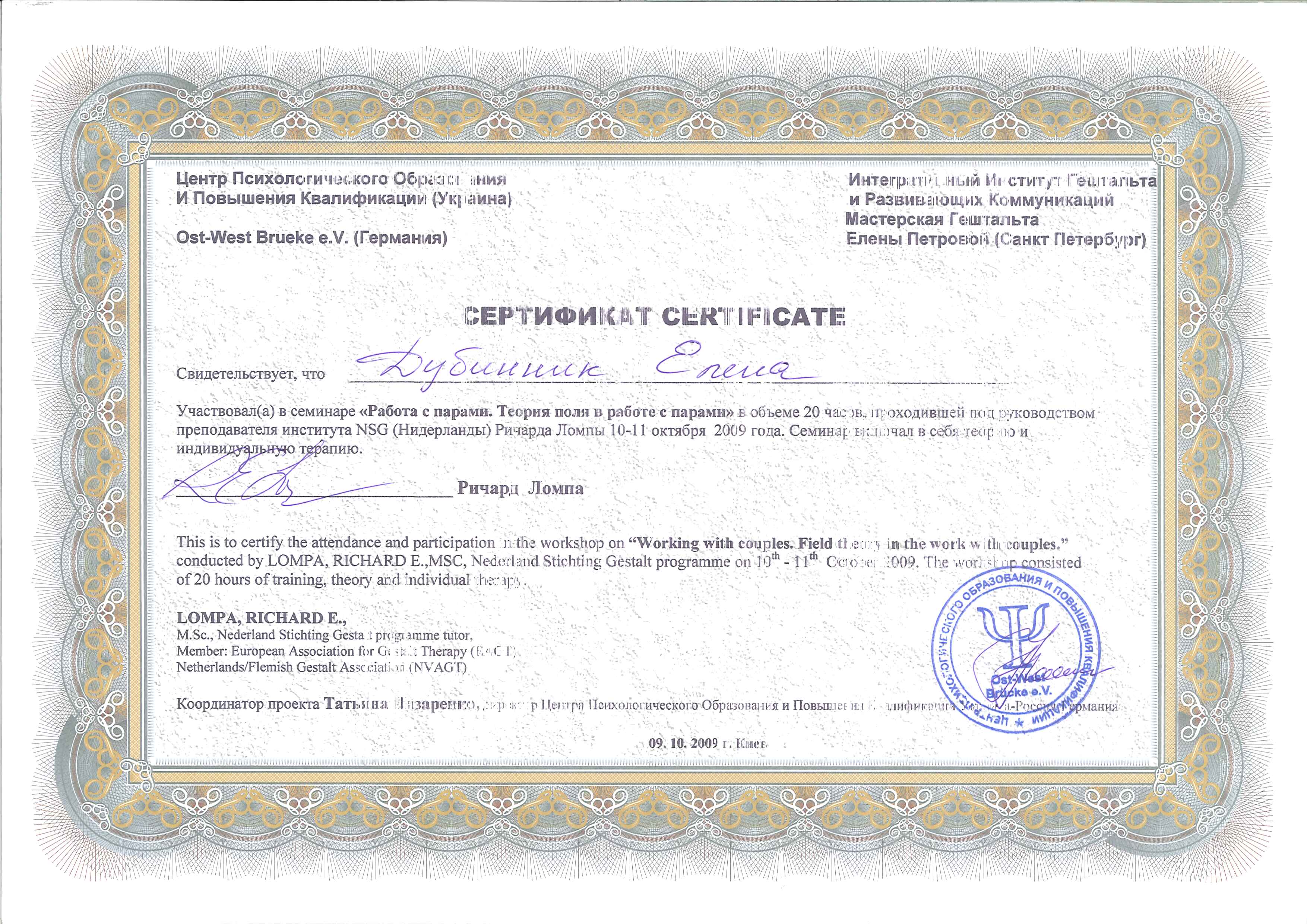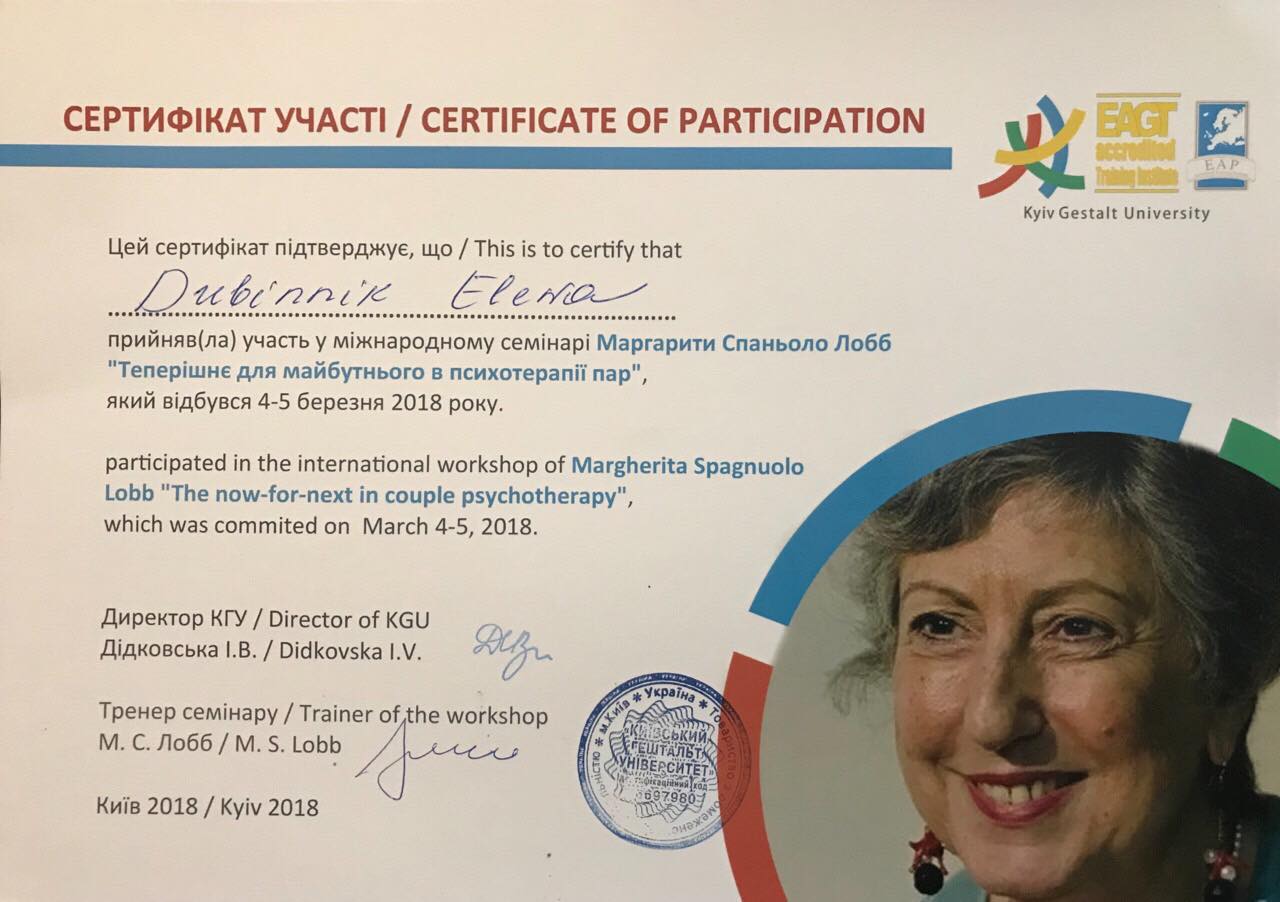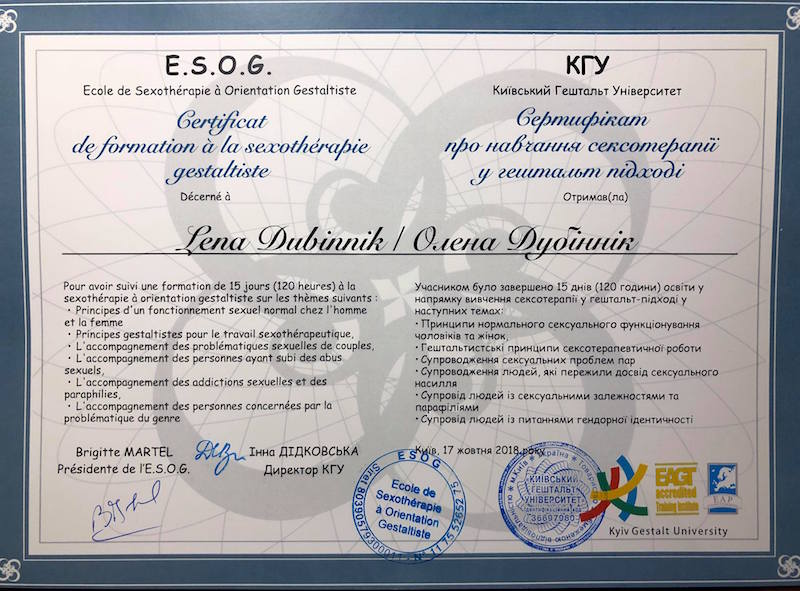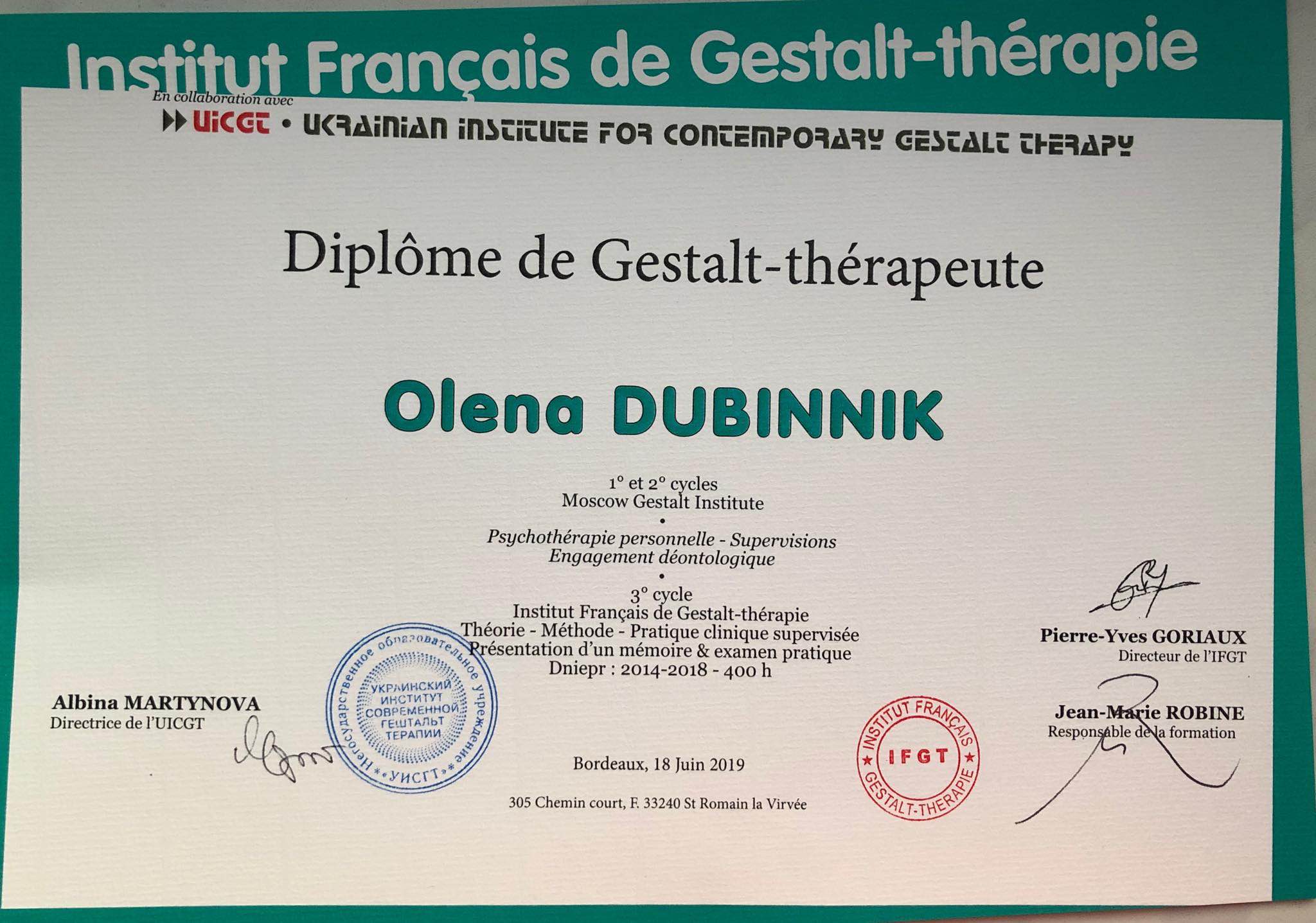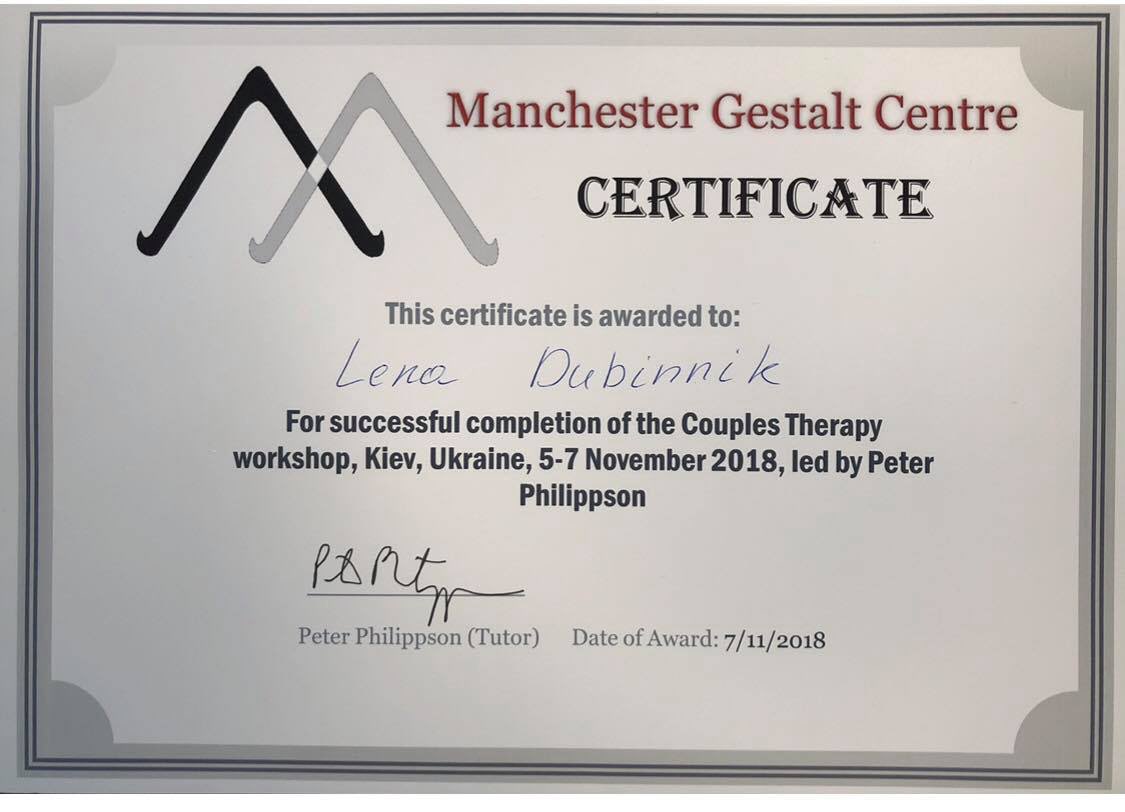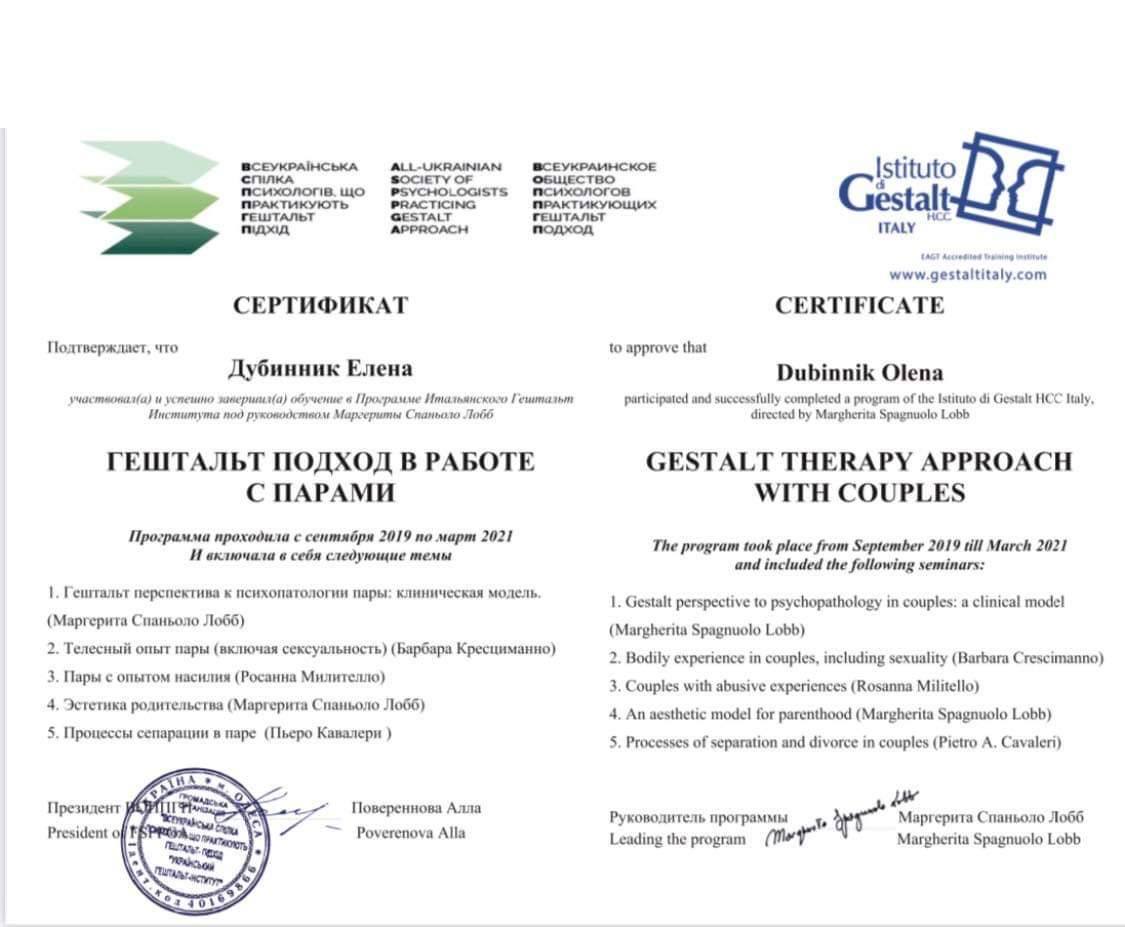Oleg Schekin
Спасибо огромное. Два простых совета, взгляд со стороны и проблема, висящая в наших отношениях с любимой женщиной исчезла. Жизнь не стала сказкой, но многих ненужных ошибок и обид стало легче избегать .
Jevgenija
Елена настоящий специалист, и даже общение на дистанции не помешало нам настроится на одну волну. Очень чувствует, что, когда , и как преподнести, чтобы информация усваивалась, а работа над собой и своими эмоциями продолжалась и вне консультаций. Помимо конкретной проблемы, с которой я к ней обратилась, мы проработали и другие аспекты моей жизни, как личной, так и профессиональной. Результат -постоянная ноющая, мааленькая, еле уловимая тревога непонятно о чём исчезла. Мои отношения с собой и окружающими стали более понятными и, как следствие, более спокойными и уравновешенными. Елена замечательная !!!! Она умеет помочь понять, осознать, а значит и решить проблему. Я уверена, что, хоть мы и завершили курс, я еще к ней обращусь. Она настоящий Помощник на пути к гармонии.
Yuliya Jemblie
Елена очень внимательный и мягкий терапевт. Не смотря на то, что сессии проходили онлайн, Елена всегда создавала комфортную атмосферу для общения. Методы работы показали результат уже после первой сессии. Ощущение легкости, душевной и телесной свободы, желание действовать в нужном себе направлении и в своем темпе - только малая часть тех трансформаций, которые переживаешь после каждой консультации. Самым значимым для меня в каждой сессии была возможность подытожить, проговорить какой опыт был вынесен после беседы. Это помогало расставить все по своим местам и давало возможность подготовить себя к новой сессии. Огромная благодарность Елене за проделанную работу!
Максим
Спустя 4 года совместной жизни,наши отношения с супругой зашли в тупик.Развод или любовницы - обычный рецепт обкатанный нашим обществом.Я же,по совету друзей,пошёл к «мозгоправу».Это было не простое решение... И вот моя первая «сессия».Тревога и напряжение.Могу ли я быть откровенен?Не трачу ли я время зря? Минут через 15 я понял что напротив меня сидит тот человек,попасть к которому нужно было давно. Я выдохнул и понеслось. До сих пор не очень понимаю как это работает,но вижу результаты.Более года,один раз в неделю,у меня сессии с Леной.Это важные часы в повседневной рутине.Я позволяю себе быть самим собой на сессии,такое дорогого стоит в наше время.Её сочетание профессионализма и сопереживания просто поражает.И ещё один удивительный факт.Лена помнит всё о чем мы говорили даже год назад.А это очень важно.
Ольга
Лена глубокий и принимающий терапевт и благодаря ей вдруг оказывалось возможным соприкасаться с самыми болезненными чувствами и пробовать их проживать, видеть и принимать себя любой. За два года было много важных осознаваний и изменений и после осталось много благодарности за качество присутствия и работы в терапии.
Александр Фролов
Вообще ничего не понимал про терапию, но накипело (как это бывает). Я человек серьезный и молчаливый. На этой почве у меня всегда было много сложностей с женой, друзьями и партнерами. Поспрашивал друзей кому доверяю, прислали ссылку. Обратился. Редко в жизни мне было так комфортно быть собой. Это сложно передать словами, но наверно сам этот факт был очень важен для меня. Проработали долго и я очень много пересмотрел в своей жизни. Раньше я много за что себя уважал, но очень мало в чем себя принимал. Сейчас это не так, за это, тебе Лена, и спасибо огромное.
Татьяна Авдюшенко
На момент начала психотерапии я была сильно уязвлена тем, что до конца осознала невозможность иметь отношений с мужем той глубины и теплоты, в которой нуждаюсь (стала нуждаться на данном этапе жизни). Мне удалось принять это осознание, и как-то застабилизироваться (хоть всё равно ещё шатко:-)). Группа важна для меня не только своим отдалённым трапевтическим эффектом, а скорее и как само явление — возможно даже больше этим. То, что происходит на группе, для меня лично — пища. Для моей души, энергетики. Я так питаюсь — искренностью, откровением, эмоциями. Чем-то очень настоящим. Именно поэтому я всегда тянулась к детям — людям, которые состоят из всего настоящего ( и меня невероятно до ужасов коробит когда вижу ребёнка, напичканого родительскими штампами, когда маленького уже делают неживым….). Три часа общения с людьми, которые пришли чтобы быть искренними (каждые в силу того, как у него получается), три часа ощущения жизни. Такие разные и все очень живые. Почти в каждом — что-то от меня, и что-то, что учишься принимать. Это ли не кайф…. Отдельно хочется отметить наших ведущих. Удивительная пара. Вот прям так и есть: мужчина и женщина. Гена всегда более прямой, конструктивный, бывает и резкий, и какой-то такой «полезный», с интересной информацией. А Лена — ну просто бери и прикладывай к больным местам: тёплая, принимающая, проникающая, эмоциональная. Как вы так друг друга нашли? Меня особо тронуло, что ведущие были с нами наравне. Если подытожить про группу — появилось ощущение, что у моей души появились друзья. в жизни всё как и было — а там, где-то внутри…уже не одна))) Отзыв на группу «Мужчина и Женщина».
Елена
Начну с того, что в силу некоторых обстоятельств год назад я сомневалась в работе гештальта… Но как показала практика, я ошибалась. Гештальт работает!). Какие изменения увидела в себе: моя реакция на многие вещи стала немного иной, а именно, если раньше при каких-то трудных ситуациях я начинала паниковать, то сейчас, автоматически включается какое-то внутреннее спокойствие и понимание, что всё равно все будет хорошо. Я понимаю, что перед всеми быть хорошей невозможно, и если кого-то я не устраиваю, то это сугубо его мнение, которое к моей личности может не иметь никакого отношения. Наверное, какие-то вещи меня продолжают задевать, но уже не так остро как ранее. У меня появилось желание проговаривать окружающим людям то хорошее, что я в них замечаю. А ранее только об этом думала и не воспроизводила вслух, боялась быть отвергнутой. Я стала понемногу рисковать и нарушать свою зону комфорта, давая себе шанс не упустить что-то ценное в жизни. Может быть, для кого-то это мало, но для меня серьезный показатель






